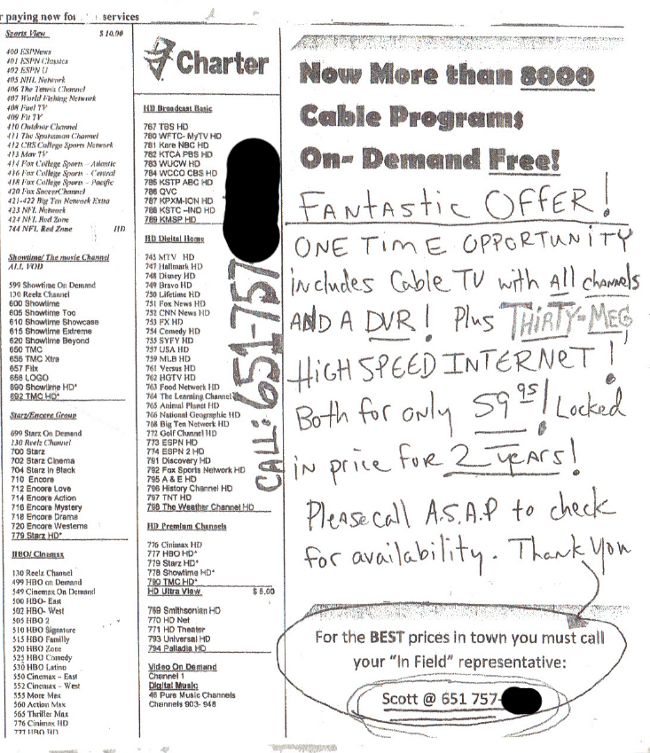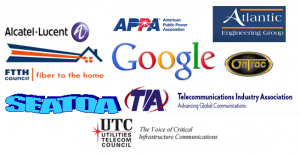If you are customer of Charter Cable, chances are you are paying a lot more than $60 a month for a complete package of cable television with a DVR box and 30Mbps broadband, price locked for two years. But Charter is selling precisely that package to customers in Monticello, Minn. Why do they get a deal you can’t have? Because your town probably doesn’t have a community-owned broadband provider delivering competition.
Charter’s website offers new customers a six-month cable/broadband promotion for $64.98 a month, but that does not include a DVR box and delivers half the speed Charter pitches to the chosen few in Monticello. After six months, the deal ends. A package including what Charter sells in Monticello for $60 a month costs more than twice as much elsewhere — $145 a month for customers in Rochester and Duluth.

"For the BEST prices in town, you must call your 'In-Field' representative," the flyer declares, including the name and number of a local Charter representative.
The cable operator is keeping the two-year special offer quiet as much as possible with the use of door flyers hand-delivered to potential customers. If Charter’s five million customers nationwide find out, they may wonder why they are paying dramatically more for the exact same service.
The city of Monticello already knows why. The local community decided the incumbent providers — TDS Telecom and Charter Communications — were not giving the city the attention it deserved, so it built its own 21st century fiber to the home system to bring faster broadband to the region. Now the incumbent commercial operators appear to be stopping at nothing to put FiberNet Monticello out of business. Charter’s pricing takes fat profits from customers in nearby Minnesota cities and appears to cross-subsidize the heavily discounted service on offer in Monticello. While that delivers short-term savings to customers in Monticello, other Charter customers are helping cross-subsidize those low rates on their own high cable bills.
If you are a Charter Cable customer, why can’t you have the same deal residents in Monticello are getting? Why not call Charter at 1-888-438-2427 and ask them?


 Subscribe
Subscribe








